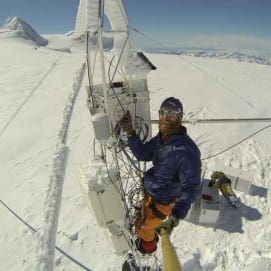
Though much is made in the media of preventative action that can be undertaken to prevent environmental catastrophe in the future, the unfortunate reality is that the climate is changing today. In many regions, this means increased incidences of drought, extreme weather events, prolonged heat waves, and other negative manifestations of a worldwide rise in temperature.
Only by building communities resilient to this type of change can society weather the literal storm and build a more sustainable future. Through transdisciplinary expertise developed in environmental studies programs, you can help guide this change and usher in a much-needed new era of sustainable living.
Here are some examples of ways you may be able to help.
To Improve Resilience, Environmental Sustainability Degree Graduates Can Encourage Interconnectedness
By deemphasizing community-oriented living, societies have created sprawling, impersonal cities and isolated rural areas. This has helped encourage long commutes in pollutive personal transportation, a sense that any personal effort to improve sustainability would be insignificant, and numerous other problems.
One of the greatest assets you can gain with an Environmental Sustainability Degree is an understanding of how a new era of community-based living can be created today. Applying this knowledge can help you advocate for useful developments like improved transportation networks, or for sensible community planning standards to prevent greater sprawl and environmental damage. Fostering this sort of thoughtful connectedness can not only help diminish ongoing damage from environmental change, but might also create a more inclusive, cohesive, and optimistic society. It’s a chance to redefine what community means for a new era of resilience in the face of climate change.
Applying Systems-Based Thinking Can Help You Predict the Effects of Community Change
Change towards greater resilience and sustainability is important and necessary, but it is also important that communities do not drive towards change with reckless abandon. There is a complex interconnection between the social, economic, and environmental systems affecting our communities and the environment. It can happen that a seemingly sensible change could create surprise adverse reactions that lead to harm.
When attempting to ascertain the results of proposed or ongoing change, training in data collection and virtual modeling allows graduates of Sustainability Master’s online programs to arrive at reliable predictions. This is a broadly applicable skill, easily useful for everything from predicting flood patterns in the face of rising sea levels, to modeling the economic and environmental effects of carbon taxes and beyond. For the environmental professional looking for a skill-set that will allow them many career opportunities to take sensible, data-driven action to create resilient communities, it’s highly recommended to complete a program that offers this kind of training.
Environmental Sustainability Degrees Help Professionals Advocate for Community Change
It is not enough to understand what needs to be changed to arrive at a more resilient society, but to know how to go about arriving at beneficial change. A great many people and organizations will not understand why change is necessary, or that it is important to take steps to prevent climate change from harming them and their communities.
This is why as an environmental professional one of your primary missions will inevitably be to use your training in oral and written communications to advocate for evidence-based policies for more resilient and sustainable communities. By enrolling in Unity College’s M.S. in Professional Science with a focus in sustainability science, you will have the opportunity to explore important communication concepts under the guidance of world leading environmental academics. Through practicing civil communication with diverse audiences, you can quickly become a master of communicating clearly about science and policy. You will be able to galvanize the support necessary for leading communities to take action to become more resilient in the face of a changing climate.
Do you want to study with one of the world’s finest environmental science colleges?
Contact Unity College to learn more about our online Master’s programs.



